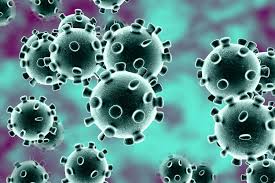

These Drugs Might Likely Help In Combating The Coronavirus Epidemic
These Drugs Might Likely Help In Combating The Coronavirus Epidemic: For quite sometime now, the world has been brought to a standstill with the outbreak of the deadly coronavirus also known as COVID-19.
Due to the high mortality rate and the rate of its widespread, scientists are working tirelessly day in day out to come up with a cure that could help in bringing this epidemic to an end. In the course of their research, some drugs have been selected as having higher chances to help in eliminating this virus totally and allowing the world to go back to the way it was before the outbreak.
Remdesivir
The new coronavirus is giving this compound a second chance to shine. Originally developed by Gilead Sciences to combat Ebola and related viruses, remdesivir shuts down viral replication by inhibiting a key viral enzyme, the RNA-dependent RNA polymerase.
Chloroquine and hydroxychloroquine
During a press conference on Friday, President Donald Trump tagged popular antimalarias chloroquine and hydroxychloroquine as the game changer. However, Hydroxychloroquine, in particular, might do more harm than good. The drug has a variety of side effects and can in rare cases harm the heart.
Ritonavir/lopinavir
This combination drug, sold under the brand name Kaletra, was approved in the United States in 2000 to treat HIV infections. Abbott Laboratories developed lopinavir specifically to inhibit the protease of HIV, an important enzyme that cleaves a long protein chain into peptides during the assembly of new viruses. Because lopinavir is quickly broken down in the human body by our own proteases, it is given with low levels of ritonavir, another protease inhibitor, that lets lopinavir persist longer.
Ritonavir/lopinavir and interferon-beta
SOLIDARITY will also have an arm that combines the two antivirals with interferon-beta, a molecule involved in regulating inflammation in the body that has also shown an effect in marmosets infected with MERS.
For now, the scientists are still working on getting a cure. All we can do is take the necessary precautions to prevent ourselves from contracting this deadly disease. Stay safe.
Similar Posts:
- Coronavirus Survivor In Florida Claims Drugs Touted By Trump Saved Him
- Cassper Nyovest tests for coronavirus – “My sinuses were acting up”
- VIDEO: ‘People are dying like flies’ – South Africans escape coronavirus lockdown in China
- A-Reece Announces The Postponement Of Reece Effect Due To COVID-19
- Minnie Dlamini – “Coronavirus is messing with my money”
